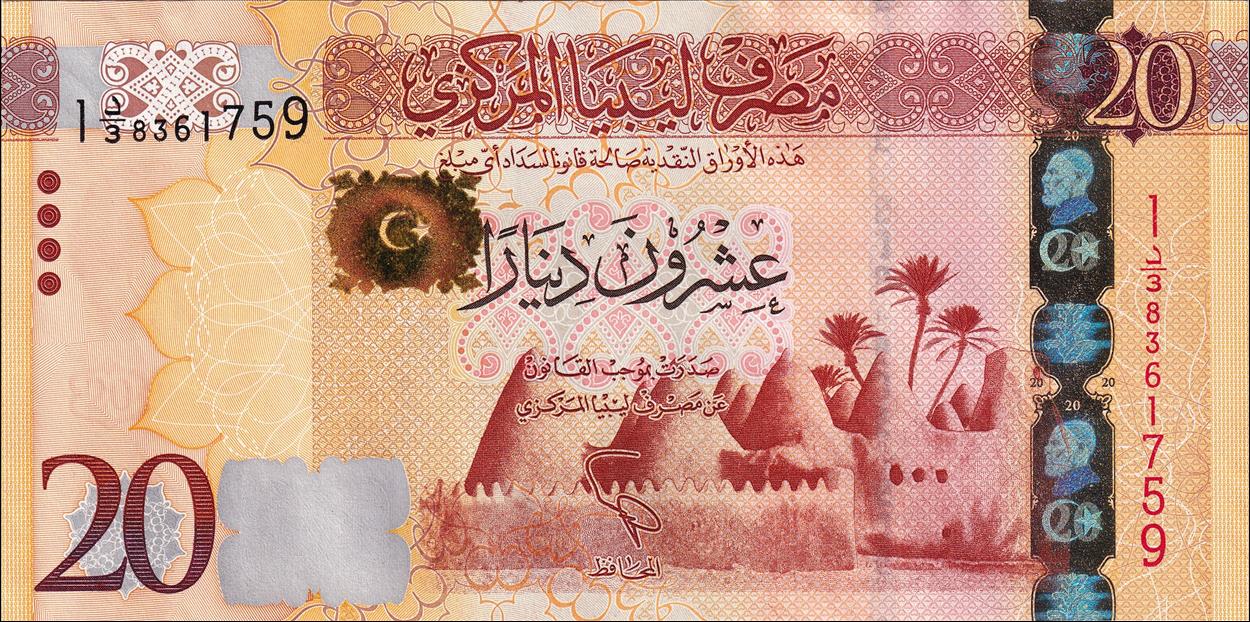
Libyan Dinar Plunges Amid Mounting Fiscal Turmoil
Libya's Central Bank has enacted a 13.3% devaluation of the national currency, setting the official exchange rate at 5.5677 dinars per US dollar. This marks the first such adjustment since 2020, as the country grapples with escalating economic instability and a widening gap between official and black-market rates, which have reached 7.20 dinars per dollar.
The devaluation underscores the deepening fiscal crisis in Libya, where rival administrations have engaged in unchecked public spending. In 2024, combined expenditures by the two governments totaled 224 billion dinars , with 42 billion dinars allocated for crude-for-fuel swaps. Public debt has surged to 270 billion dinars, with projections indicating it may exceed 330 billion dinars by the end of 2025 in the absence of a unified national budget.
The Central Bank attributes the currency's decline to a significant expansion in the money supply, now at approximately 178.1 billion dinars, and a notable decrease in oil revenues, which dropped to about $18.6 billion in 2024. This shortfall, coupled with foreign currency expenditures of around $27 billion, has created a substantial funding gap, hindering the Bank's ability to maintain a stable exchange rate policy.
Political fragmentation continues to exacerbate economic challenges. The Government of National Unity has accused the rival administration led by Osama Hammad of unauthorized spending amounting to 59 billion dinars in 2024, significantly exceeding the 12 billion dinars allocated for public development. Such expenditures have reportedly depleted cash reserves, increased public debt, and contributed to the dinar's depreciation.
The Central Bank has expressed concern over the lack of a unified economic vision, stating that the ongoing division between governments has severely constrained its ability to implement effective monetary policies. The Bank also highlighted issues such as smuggling, irregular migration flows, and the consumption of approximately $7 billion annually by the informal expatriate workforce, all of which have intensified pressure on foreign currency resources and expanded the black market for currency exchange.
See also Euclid Space Telescope Unveils 26 Million Galaxies in Quest to Decode Dark UniverseIn response to these challenges, the Central Bank plans to reconsider the dinar's exchange rate against other currencies and implement stricter controls on foreign currency transactions. These measures aim to achieve a degree of balance in the current absence of comprehensive macroeconomic policies.
Notice an issue? Arabian Post strives to deliver the most accurate and reliable information to its readers. If you believe you have identified an error or inconsistency in this article, please don't hesitate to contact our editorial team at editor[at]thearabianpost[dot]com . We are committed to promptly addressing any concerns and ensuring the highest level of journalistic integrity. Legal Disclaimer:
MENAFN provides the
information “as is” without warranty of any kind. We do not accept
any responsibility or liability for the accuracy, content, images,
videos, licenses, completeness, legality, or reliability of the information
contained in this article. If you have any complaints or copyright
issues related to this article, kindly contact the provider above.


















Comments
No comment